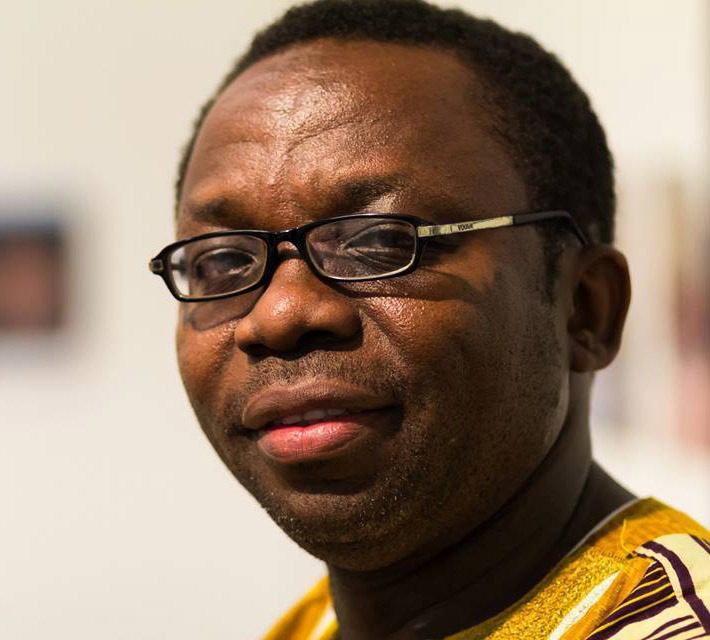Global Issues
Humanism and Stigma of Non-Religiosity in Africa -By Leo Igwe

June is a special month for humanists and those who espouse a non-religious life stance around the globe. Put differently, June is the Humanist History Month. June 21 is world humanist day. On this day, humanists celebrate humanist ideals and values. Incidentally, the celebration of world humanist day happens mainly in the West because western countries have a long and strong tradition of humanism. Organized humanism has evolved over the years and continues to grow from strength to strength. The world humanist day is marked by lectures, conferences, meetings, and social gatherings of humanists. atheists and agnostics.
But in other parts of the world especially in Africa, the world humanist day is largely unknown. Humanists seldom celebrate humanism. Humanists do not usually observe the world humanist day. Humanists do not mark this day because it is dangerous to openly and publicly identify with humanist ideals and values. Look, there is nothing dangerous in humanist ideas. Humanism is a positive and progressing life stance. Humanism is the most human of all human philosophies. Humanism codifies human excellencies. Millions of persons across Nigeria and Africa are humanists even though they do not openly and publicly identify as such. There is a reason for the lack of visibility of humanism and humanists in Africa. Being openly a humanist is risky. It has social costs and consequences. Religious believers are socialized to persecute, and oppress humanists with impunity. Religious believers react with antagonism towards humanists and humanism due to ignorance and misinformation about the humanist outlook. Thus, in places where humanists are at risk, and in parts of the world where non-religious persons can be attacked, killed, or jailed, the month of June should be devoted to promoting public knowledge and understanding of humanism. It is necessary to use the month to correct mistaken notions of humanism and dispel ignorance, misinformation, prejudice, and stigma linked to the notion of non-theism and non-religiosity.
To this end, there is a need to emphasize equality and humanity of all persons-religious or non-religious. Too often religious profession is predicated on an unequal relationship between religious believers and unbelievers. Religious believers mistreat and dehumanize others for not believing in their god or religion. Christians demonize and satanize non-believers in Christianity. Many believers designate humanism as satanism or a form of devil’s worship. Muslims treat non-believers in the Islamic god or prophet as enemies, and criminals who should be killed or imprisoned. Several sections of the Quran urge Muslims to wage war against non-believers in the Islamic god and prophet. Many Quranic injunctions sanctify the murder of ‘unbelievers. Meanwhile, Muslims believe that these Quranic provisions are eternally true, and beyond question and criticism. The dogmatic nature of religious doctrines makes it difficult -and dangerous to revise and reform religious enterprises. It inclines religions towards intolerance, persecution, and fanatical hatred of those who dissent, criticize or profess no religion or belief in a god. This religious situation must change.
Religious believers need to realize that profession of religion does not make some people more human than others. Belief in God or lack thereof does not and should not detract from the humanity of any individual. The notion that religious or supernatural belief confers higher moral character on believers is utterly mistaken and misguided. This impression provides a slippery slope towards religious tyranny and totalitarianism. Humanists are human beings and should be treated with dignity and respect. Unfortunately, this is not the case in many African countries. Persecution of humanists is pervasive in religious communities in the region.
Looking ahead, the oppression of humanists in religious-Muslim- or Christian-dominated societies must end. The right to freedom of religion or belief of atheists or agnostics must be respected and guaranteed in all countries. For instance, the idea of imprisoning a humanist for expressing views that are critical of the prophet of Islam as we recently saw in Nigeria must stop. Blasphemy is a right not a crime. It is also outrageous to treat humanism as a form of mental illness, as we saw in Sudan and Nigeria. Expressions of humanist views are demonstrations of intellectual courage, not signs of mental health disorder.
Islam, like other religions, thrives on criticizing other religions. Thus criticism of ideas, both religious and non-religious, should be celebrated. There should be no stigma attached to being a humanist or holding religiously dissenting or critical views and opinions. It should not be socially disabling to renounce or embrace any religion or to openly and publicly identify as non-religious or as non-theistic. Both humanism and religions, atheism and theism, naturalism and supernaturalism are products of human creation and imagination.


















